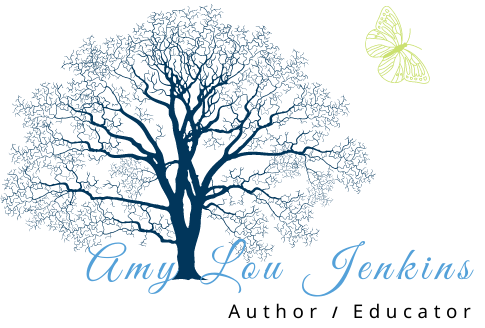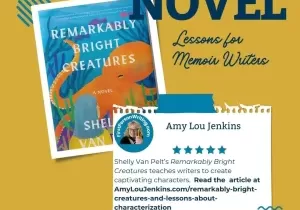
Begin Your Memoir: With or Without Prompts
The Pros and Cons of Using Writing Prompts in Memoir Writing
How does a Memoir writer begin? How does a writer pull a meaningful story from life events? Writing prompts often emerge as a useful tool to kick-start the creative. Prompts also come with drawbacks that need thoughtful consideration. Some mentors eschew them, and I’ve read some that I consider to be a waste of time. If a writing prompt brings you toward your material, it’s working. Try writing prompts that are specific to memoir writing if you are looking for the story of your memoir.
The Pros of Using Writing Prompts
Stimulating Creativity and Memory Recall
Writing prompts can serve as excellent catalysts for creativity. They provide a focused starting point, helping writers recall specific memories or emotions that might serve as material for their memoir. For instance, a prompt like “Describe your happiest childhood memory” can transport a writer back to a significant, joy-filled moment, uncovering vivid details and a few surprises. When a writer begins to restimulate the neural pathways to memories in the past, surprises may appear. The accumulation of results from additional prompts may reveal thematic ties. Perhaps your best memories happened while camping or while preparing meals with extended families. You explore more about these times and may find your before and after story. Perhaps your place in the family changed as your parents aged. The transition from baby of the family to caregiver may be your story. Or you find that family recipes hold the story of your family. Perhaps the love of the outdoors you had as a child became the antidote to the darkness of your adult responsibilities.
Overcoming the Blank Page
One of the most challenging aspects of writing a memoir is overcoming writer's block. Writing prompts provide concrete starting points that can help writers get words on the page. This initial momentum can be critical in overcoming the fear of the blank page and easing into a more natural writing flow. Prompts can thus function as productive warm-up exercises, breaking down larger tasks into manageable pieces.
Exploring Diverse Angles and Themes
Prompts can help writers explore their stories from multiple perspectives. By tackling a variety of prompts, writers can delve into different themes, emotions, and periods of their lives, eventually identifying overarching themes or patterns that could form the backbone of their memoir. For instance, prompts about family relationships, personal achievements, and obstacles overcome can reveal how interconnected these experiences are within the writer’s life narrative.
The Magic of Ten Minutes
If your writing exercise is a ten-minute sprint, not much can go wrong. If you spend only ten minutes discovering that a particular exercise didn’t go anywhere, you didn’t lose much. And some would say, practice alone builds creativity.
Developing Writing Habits
Using prompts can instill a disciplined writing habit. As some writers discover, the consistency of responding to a prompt a day can slowly convert writing into a daily practice rather than an occasional activity. This routine not only improves writing skills but also ensures steady progress on the memoir. When you have writing momentum and sit down with a head full of ideas, I say: follow the momentum. If you have momentum, you don’t need prompts. If you feel stuck, pull out the prompts.
The Cons of Using Writing Prompts
Risk of Superficial Writing
One significant drawback of writing prompts is the potential for superficiality. Prompts by their very nature are often brief and singularly focused, which might lead writers to produce fragmented or shallow pieces of writing that lack depth and coherence. This can be counterproductive for memoir writing, which thrives on deep, reflective, and nuanced storytelling. Your response to a prompt may lead you to new areas to explore on the page. Secondary writing from the prompt may bring you closer to your story.
Distraction from the Core Narrative
With an abundance of prompts available, there's a risk of getting sidetracked. Writers might spend too much time responding to various prompts and end up with disjointed pieces of writing that don’t cohesively contribute to the memoir's main narrative. The time and energy spent on prompts could then detract from developing a well-structured and focused story arc.
Dependence on External Ideas
Another downside is that excessive reliance on prompts can stifle originality. Writers might become accustomed to external stimuli, which can hinder their ability to generate internal, self-driven ideas. The goal of memoir writing is to tell one’s unique story in a voice that feels authentic, and prompts might sometimes lead writers away from their innermost thoughts and genuine experiences.
Schools of Thought on Finding Your Memoir Story
Organic Discovery vs. Structured Approach
One school of thought advocates for an organic discovery of the memoir’s story. Proponents believe that the memoir should emerge naturally from the writer's introspection and retrospection. They argue that memoir writing is a journey of self-discovery, where the story reveals itself through the process of writing and reflection rather than through predetermined structures or guidelines. This approach emphasizes authenticity and serendipity, encouraging writers to plunge into their experiences and emotions to find their narrative thread.
Strategic Planning with Structural Frameworks
Conversely, another school of thought supports a more structured and strategic approach. Here, writers use frameworks and planning tools to map out their memoirs. This method involves creating detailed outlines, character sketches, and thematic charts to maintain focus and coherence. Writing prompts can help in generating parts of the narrative, which can then be woven and expanded into a comprehensive storyline. Supporters of this method argue that planning reduces the unpredictability and disorganization that can derail the writing process, especially for longer projects.
How about a Hybrid Approach
Another way to consider discovery vs structured approach is to use them both. Once discovery has revealed your before and after story, it’s time to apply some structure and consider plotting with respect for the principles of good story telling.
Do Write Your Story While considering the Pros and Cons of Writing Prompts for Memoir
The decision to use writing prompts in memoir writing ultimately hinges on the writer’s personal style and preferences. While prompts offer an array of benefits like stimulating creativity, overcoming writer's block, and fostering writing habits, they also pose risks such as promoting superficial writing and creating dependence on external ideas. By weighing these pros and cons, writers can judiciously decide how to incorporate prompts into their writing process.
Moreover, balancing the organic discovery of a narrative with a strategic approach can provide a more holistic framework for memoir writing. Embracing the flexibility to switch between these methods allows writers to harness the strengths of both schools of thought, leading to a more enriched and authentic storytelling experience.
If an aspiring memoir writer has difficulty finding the story of their memoir, they could begin with a few simple prompts, such as those in the Five Must-Dos to Find Your Story and Begin Your Memoir. Then the writer circles the areas of surprises, repeated ideas, and areas for further development. This focus on your own material will bring you closer to your story.
Judicious use of writing prompts, combined with a clear understanding of one’s narrative, can significantly enhance the memoir-writing journey, transforming subjective experiences into meaningful stories.











